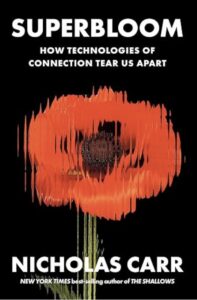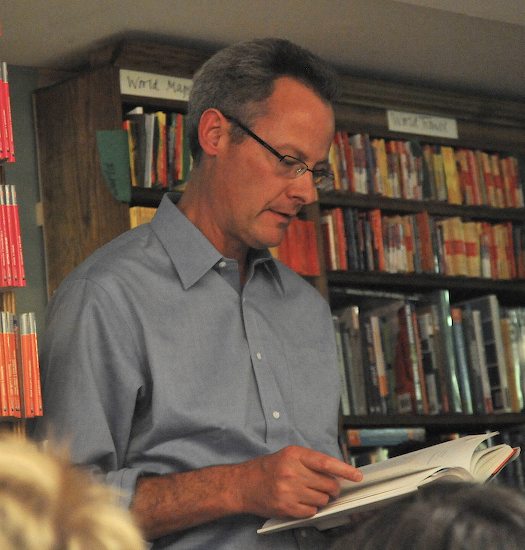Lending a hand

Quote of the Day
”Life is a picnic on a precipice.”
- W.H. Auden
Musical alternative to the morning’s radio news
Beethoven | Overture to Egmont | Kurt Masur and the Gewandhaus Orchestra
Moving fast and breaking things wasn’t always a recipe for destruction
This week’s Observer column:
Reid Hoffman’s best-known book is Blitzscaling, which he co-wrote with Chris Yeh. When Hoffman talks about its striking title, he acknowledges its unsavoury echoes of the blitzkrieg, the innovative form of warfare practised by Germany in the 1940s. “Before blitzkrieg… armies didn’t advance beyond their supply lines, which limited their speed. The theory of the blitzkrieg was that if you carried only what you absolutely needed, you could move very, very fast, surprise your enemies, and win.
“Once you got halfway to your destination, you had to decide whether to turn back or to abandon the lines and go on. Once you made the decision to move forward, you were all in. You won big or lost big. Blitzscaling adopts a similar perspective.”
It’s about prioritising growth above everything else. It involves taking more risks than is prudent, making mistakes all the time but learning and recovering from them quickly, stressing people out with the aim of getting so many users that potential competitors lose their nerve. And it’s not for the faint-hearted: those seeking a healthy work-life balance need not apply.
Which, oddly enough, describes what it’s like to work for Elon Musk, who is possibly the most difficult boss on the planet…
Long Read of the Day
The Last Humanist: Nicholas Carr on What the Digital Age Can’t Replace

Screenshot
Erik J Larson’s long, thoughtful review of Nicholas Carr’s new book.
In an era where “content” is measured less by substance than by shareability, Nicholas Carr remains a rare figure: a cultural critic who engages the digital age without succumbing to its tempo. His work resists the attention economy even as it dissects it, a kind of elegant irony that seems increasingly scarce. Carr writes not to provoke but to understand—a posture that feels almost antique in the age of the algorithm. If most Internet writing today is tuned to the viral frequency of outrage or affirmation, Carr’s essays hum at a different register: explanatory, deliberate, steeped in a long view.
Reading Carr, one is reminded of an earlier generation of critics—Neil Postman, Marshall McLuhan, Susan Sontag—figures who treated technology not merely as a suite of tools but as a cultural atmosphere. Like them, Carr asks how our instruments change us. And like them, he brings a literary sensibility to his diagnosis, eschewing jargon for prose that is as precise as it is lucid. If Carr sometimes seems out of step with the dominant cultural tempo, it’s because he’s marching to a longer rhythm. That’s exactly what makes him so essential…
In the early days of the Web, Carr was one of the network’s most persuasive public intellectuals. Like Larson, I saw him as a continuation of the cultural criticism practised by Neil Postman, Eric Mumford, Marshall McLuhan et al. I read everything he published, and photographed him at a book-launch event for him in October 2010 at Toppings wonderful bookshop in Ely.

But then — as Larson observes in the essay, he disappeared from view. So it’s thrilling that he’s back in print, and Superbloom has joined my reading list.
My commonplace booklet
Neal Stephenson has a Substack. If you want to know why this is interesting news, try it. It is, he says “Mostly about the intersection of tech and art, with some excursions, digressions, and tangents”. Which, for those of us who admire his work, is reason enough. I first discovered him when I read his essay on Linux — “In the Beginning Was The Command Line” — aeons ago.
This Blog is also available as an email three days a week. If you think that might suit you better, why not subscribe? One email on Mondays, Wednesdays and Fridays delivered to your inbox at 5am UK time. It’s free, and you can always unsubscribe if you conclude your inbox is full enough already!
